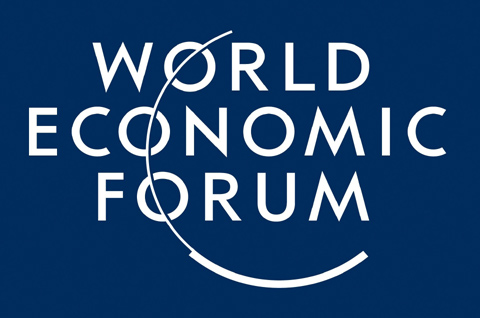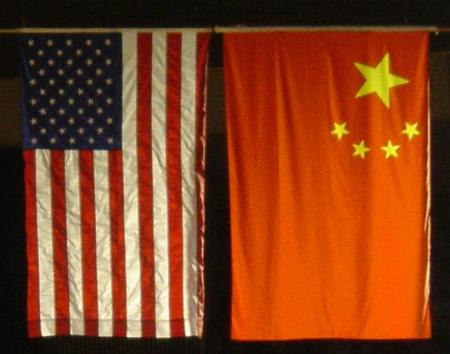Business & Finance Group - Global Forum - BEIJING: In a long-term view, the rise of China is to be welcomed, but today China remains a "premature superpower."
China's current reputation for power benefits from projections about the future. In one poll, 44% of respondents mistakenly thought that China already had the world's largest economy, compared to 27% who accurately picked the United States (which is three times larger). Martin Jacques even entitled his recent book "When China Rules the World: The End of the Western World and the Birth of a New Global Order."
Some people draw analogies to the rise of Germany a century ago, and predict a coming conflict with the U.S. like that between Germany and Britain. Fortunately, these fears are exaggerated.
While most projections of Chinese power are based on the rapid growth rate of gross domestic product, China has other significant power resources. In terms of basic resources, its territory is equal to that of the United States and its population is four times greater. It has the world's largest army, about 200 nuclear weapons, and modern capabilities in space and cyber space (including the world's largest number of Internet users.)
In soft-power resources, China still lacks cultural industries able to compete with Hollywood or Bollywood; its universities are not yet the equal of America's; and it lacks the many non-governmental organizations that generate much of America's soft power.
However, it is making major efforts to increase its soft power. China has always had an attractive traditional culture, and it has created several hundred Confucius Institutes around the world to teach its language and culture. The enrollment of foreign students in China has tripled from 36,000 to 110,000 over the past decade, the number of foreign tourists has also increased dramatically, and China Radio International has increased its broadcasts in English to 24 hours a day. China has also adjusted its diplomacy to use more multilateral arrangements to alleviate fears, and reduce the likelihood of other countries allying to balance a rising power.
While China has impressive power resources, one should be skeptical about projections based solely on current growth rates, political rhetoric, military contingency plans, and flawed historical analogies. In both China and the U.S., perceptions of the other country are heavily colored by domestic political struggles, and there are people in both countries who want to see the other as an enemy.
Even without such distortions, the military on both sides would be seen by its countrymen as derelict in its duties if it did not plan for all contingencies. As for historical analogies, it is important to remember that by 1900, Germany had surpassed Britain in industrial power, and the Kaiser was pursuing an adventurous, globally oriented foreign policy that was bound to bring about a clash with other great powers.
In contrast, China still lags far behind the United States economically, and has focused its policies primarily on its region and on its economic development. While its "market Leninist" economic model (the so-called "Beijing Consensus") provides soft power in authoritarian countries, it has the opposite effect in many democracies.
Nonetheless, the rise of China recalls Thucydides' warning that belief in the inevitability of conflict can become one of its main causes. Each side, believing it will end up at war with the other, makes reasonable military preparations which then are read by the other side as confirmation of its worst fears. This would be a major loss for both sides.
In fact, the "rise of China" is a misnomer. "Reemergence" would be more accurate, since by size and history, the Middle Kingdom has long been a major power in East Asia. Technically and economically, China was the world's leader (though without global reach) from 500 to 1500 AD. Only in the last half millennium was it overtaken by Europe and America, which were first to benefit from the industrial revolution.
After Deng Xiaoping's market reforms in the early 1980s, China's high annual growth rates of 8% to 9% led to a remarkable tripling of its gross national product in the last two decades of the 20th century, and this pragmatic economic performance, along with its Confucian culture, enhanced China's soft power in the region.
China has a long way to go to equal the power resources of the United States, and still faces many obstacles to its development. At the beginning of the 21st century, the American economy was about twice the size of China's in purchasing power parity, and more than three times as large at official exchange rates.
All such comparisons and projections are somewhat arbitrary. Even if Chinese GDP passes that of the United States around 2030, the two economies would be equivalent in size, but not equal in composition. China would still have a vast underdeveloped countryside, and it will begin to face demographic problems from the delayed effects of the one-child-per-couple policy it enforced in the 20th century.
Moreover, as countries develop, there is a tendency for growth rates to slow. Assuming a 6% Chinese growth and only 2% American growth after 2030, China would not equal the United States in per-capita income until sometime in the second half of the century.
Per-capita income provides a measure of the sophistication of an economy. In other words, China's impressive growth rate combined with the size of its population will surely lead it to pass the American economy in total size at some point. This has already provided China with impressive power resources, but that is not the same as equality. And since the United States is unlikely to be standing still during that period, China is a long way from posing the kind of challenge to American preponderance that the Kaiser's Germany posed when it passed Britain at the beginning of the last century. The facts do not at this point justify alarmist predictions of a coming war.
Moreover, linear projections of economic growth trends can be misleading. Countries tend to pick the low-hanging fruit as they benefit from imported technologies in the early stages of economic take-off, and growth rates generally slow as economies reach higher levels of development.
In addition, the Chinese economy faces serious obstacles of transition from inefficient state-owned enterprises, growing inequality, massive internal migration, an inadequate social safety net, corruption and inadequate institutions could foster political instability. The north and east of the country have outpaced the south and west.
During the past decade, China moved from being the ninth-largest exporter to the largest in the world, but China's export-led development model will probably need to be adjusted as global trade and financial balances become more contentious in the aftermath of the 2008 financial crisis.
Some economists think this could lead to a painful financial contraction, but not a collapse. As one argues: "Chinese growth will almost certainly slow dramatically, but the country will nonetheless continue to grow faster than the rest of the world."
And although China holds huge foreign currency reserves, China will have difficulty in increasing its financial leverage by lending overseas in its own currency. Until China has a deep and open bond market where interest rates are set by the market and not the government, there will be only limited takers for yuan-denominated assets.
Unlike India, which was born with a democratic constitution, China has not yet found a way to solve the problem of demands for political participation (if not democracy) that tend to accompany rising per-capita income. The ideology of communism is long gone, and the legitimacy of the ruling party depends upon economic growth and ethnic Han nationalism.
Some experts argue that the Chinese political system lacks legitimacy, suffers from a high level of corruption, has no clear vision for self improvement and is vulnerable to political unrest should the economy falter. Whether China can develop a formula that can manage an expanding urban middle class, regional inequality, and resentment among ethnic minorities remains to be seen.
The basic point is that no one, including Chinese, knows how China's political future will evolve and how that will affect its economic growth.
Cyber politics presents another complication. With nearly 400 million users, China has the largest Internet population, as well as a highly developed system of governmental controls and filters. Not only are many Internet users intensely nationalistic, but minority liberal views are filtered out and dissent is punished.
Nonetheless, some leakage of information is inevitable. Coping with greatly increasing flows of information at a time when restrictions can hinder economic growth presents a sharp dilemma for Chinese leaders.
Some American experts worry that its leaders' sense of vulnerability could cause China to behave rashly in a crisis. Or as President Bill Clinton put it in 1999, while most people worry about the challenge of a strong China, "let us not forget the risk of a weak China, beset by internal conflict, social dislocation and criminal activity; becoming a vast zone of instability in Asia." A China that cannot control flows of migration, environmental effects on the global climate, and internal conflict poses a serious set of problems.
As long as China's economy does grow, it is likely that its military power will increase, thus making China appear more dangerous to its neighbors. Official Chinese reports of military expenditure do not include many items that are listed in the American defense budget, but regardless of its composition, from 1989 to 2010 China's official military budget increased by double digits every year.
The Gulf War in 1991, the tensions over Taiwan in 1995-96, and the Kosovo campaign of 1999 showed Chinese leaders how far China lagged behind in modern military capabilities, and as a result they nearly doubled military expenditures over the course of the 1990s.
China has imported military technology from Russia, and its own industries are producing some weapons systems that are approaching the capability of those in the American inventory. A 2009 Pentagon report estimated China's total military spending to be between $105 billion and $150 billion (compared to $719 billion for the U.S.) or about 1.5% of GDP (compared to 4% for the U.S.) At the same time, China has not developed impressive capabilities for global force projection, and is only at the beginning of the complex process of developing a blue-water navy with carrier battle groups.
Deng Xiaoping once told the UN General Assembly in 1974 that "China is not a superpower, nor will it ever seek to be one." The current generation of Chinese leaders, realizing that rapid economic growth is the key to domestic political stability, has focused on economic development and what they call a "harmonious" international environment that will not disrupt their growth.
But generations change, power often creates hubris, and appetites sometimes grow with eating. Martin Jacques argues that "rising powers in time invariably use their newfound economic strength for wider political, cultural and military ends. That is what being a hegemonic power involves, and China will surely become one."
Some Americans worry that China aims "in the near term to replace the United States as the dominant power in East Asia and in the long term to challenge America's position as the dominant power in the world."
Even if this were an accurate assessment of China's intentions, it is doubtful that China will have the military capability to make this possible. Moreover, Chinese leaders will have to contend with the prices imposed by other countries, as well as the constraints created by their own objectives of economic growth and the need for external markets and resources. Too aggressive a Chinese military posture could produce a countervailing coalition among its neighbors in the region that would weaken both its hard and soft power.
A recent Pew poll of 16 countries around the world found a positive attitude towards China's economic rise, but not its military rise. "If China is perceived as mainly an economic actor, that person is likely to both approve China's rise and being pro-U.S. By contrast, if an individual mainly sees China as an increasing military power, then his or her pro-American sentiments will often mean disapproval of China's rise."
The fact that China is not likely to become a peer competitor to the United States on a global basis, does not mean that it could not challenge the United States in Asia, and the dangers of conflict can never be completely ruled out. But basically, Bill Clinton was right when he told Jiang Zemin in 1995 that the United States has more to fear from a weak China than a strong China.
Thus far, the United States has accepted the rise of Chinese power and invited Chinese participation as a responsible stakeholder in the international system. Power is not always a zero-sum game. Given the global problems that both China and the United States will face, they have much more to gain from working together than in allowing overwrought fears to drive them apart, but it will take wise policy on both sides to assure this future.












